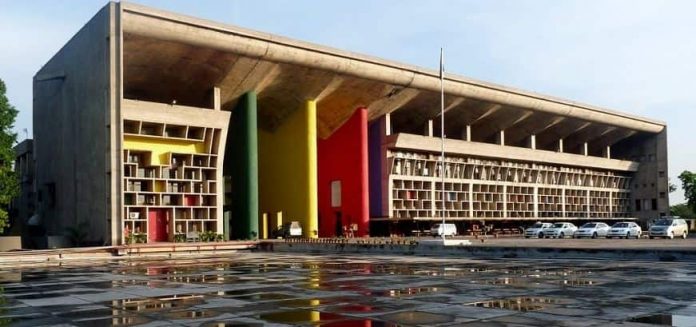The Punjab and Haryana High Court has held that once a woman solemnizes ‘kareva’ marriage after her husband’s death, she can no longer be termed a destitute and hence she would also not be entitled to receive widow pension.
Kareva or ‘Chaddar Andazi’ is performed in case of remarriage by a widow. The future husband puts a ‘chaddar’ or white sheet over the would-be wife’s head as part of the ceremony. A division bench of the high court had already held that there was ample evidence available to suggest that the ‘chunni’ ceremony itself was a prevalent form of marriage.
A single-judge bench of Justice Lisa Gill partly allowed the plea, inasmuch as the court had stayed recovery proceedings, but also clarified that the petitioner would not receive any further amount towards the widow pension scheme.
The court said that the scheme in question was meant to remedy a situation where a woman is rendered helpless, or a destitute, with no source of income following the death of her husband. The petitioner did not deny that a ‘kareva‘ or ‘chunni‘ ceremony had taken place, but her argument was that it cannot be called marriage.
The ruling was made in a petition seeking quashing of recovery notices issued to the Petitioner, Suman, calling upon her to deposit a sum of Rs 1,82,727 that was released to her towards widow pension under the Haryana Pension to Widows and Destitute Women Scheme Rules, 1988-1989. The ground was that she had had a ‘kareva marriage’ with her brother-in-law.
The court noted that the petitioner herself had submitted an application clearly stating that she wished the pension being received by her to be stopped as she had performed ‘kareva marriage’ three years after the death of her husband.
Under these circumstances, the court said, failure of the authority to investigate if the petitioner was wrongfully receiving the pension did not warrant an adverse action against the petitioner.
The story so far
The petitioner is a widow. She said she was from a financially disadvantaged Harijan community and had claimed pension under the Widow Pension Scheme which is one of the social security schemes of Haryana.
She was allowed to receive pension under that scheme as she claimed that her subsistence depended entirely on that pension. She said that the pension would also help her in laws, including her father-in-law as and brother-in-law.
She later performed kareva marriage with her brother-in-law, and a daughter was born out of the ‘wedlock’. The widow pension being released to the petitioner was stopped after a complaint was filed, alleging that the petitioner was withdrawing widow pension in an illegal manner having solemnized a second marriage.
An order demanding recovery of some amount with interest was also issued. This order was challenged before the Punjab and Haryana High Court and a petition was filed seeking quashing of recovery notices issued to the petitioner, Suman, calling upon her to deposit a sum of Rs 1,82,727 that was released to her towards widow pension.
The court has set aside the impugned order to the effect that it seeks recovery of the amount released to the petitioner, as the committee for scrutiny had failed to perform its duty to investigate if any of the pensioners is no longer eligible for pension.
The court held that the petitioner wasn’t entitled to grant of pension under the aforesaid scheme, neither were the respondents entitled to recover the amount already released to her.
Read the order here;
CWP_28008_2017_13_03_2020_FINAL_ORDER-India Legal Bureau


